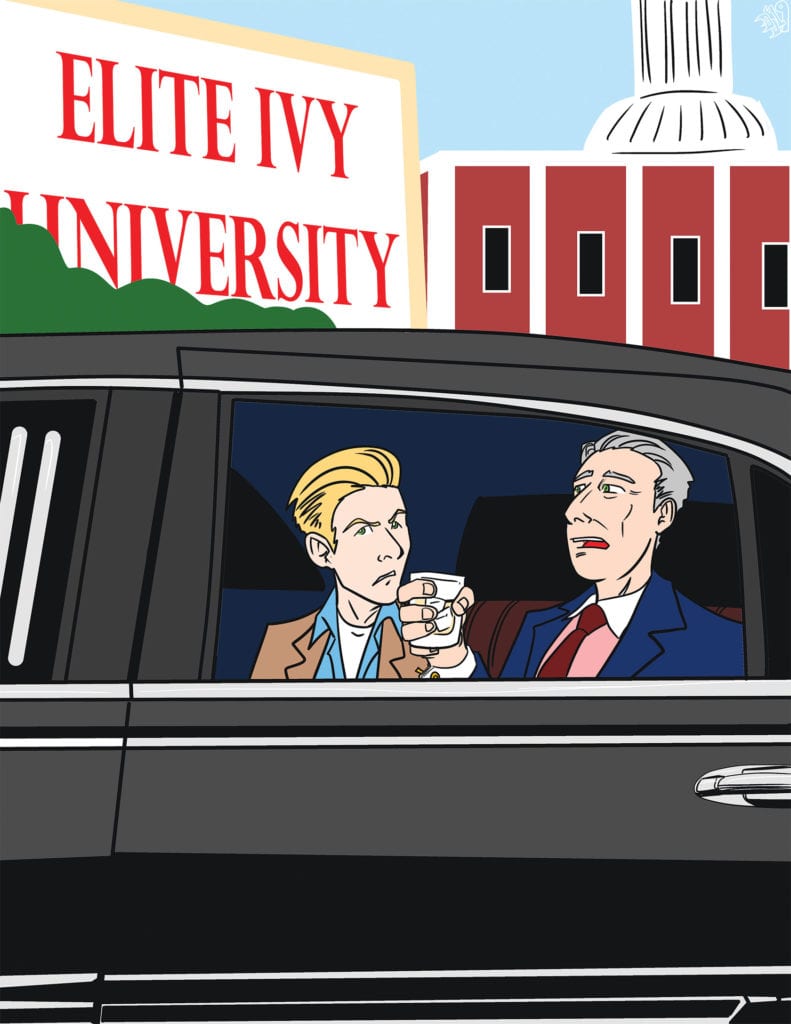
Political leaders are quick to assert that the American Dream is available to everyone. Affluence is close at hand, they say, for those who work hard and abide by the rules. Few advisors would overtly suggest that you should do anything to win. The example usually offered is the success of those who complete their college education and then divert their energies to the professions or a business management career. However, the recent discovery of fraud in college admissions indicates a rampant dishonesty in American culture.
The “pay-for-admission” scam is a fraud available only for the well-to-do. Students from impoverished families are encouraged to study hard to gain admission to an elite college in order to climb to the top of the post graduate employment ladder. However, they discover that competition for acceptance by the prime colleges is so keen that some wealthy applicants scheme and connive in order to get that acceptance letter in the mail. For example, there were 42,728 applications to Harvard for the class of 2022, but only 2,024 were admitted.
Most people expect that the children of alumni or major financial benefactors will have an advantage in being accepted, but it was surprising to learn what measures ambitious families would take to help their children. It is a process that begins for some in elementary and high school. The first step is to be admitted to the elite high schools.
In New York and Boston, academically rigorous high schools require high grades in the admission exam. Only 7 black students were invited to attend Stuyvesant High School in New York next year. Stuyvesant is New York’s most prestigious high school. According to the New York Times, 10 percent of Stuyvesant’s students in 1976 were black, 70 percent were white and 16 percent were Asian. Those statistics for 2016 had become 1 percent, 12 percent and 74 percent, respectively.
The establishment of tutorial programs to prepare students for the college admission exam is cited as a major reason for the change. Blacks and Latinos were less likely to afford the expense, but Asians found a way to meet the cost as well as engage in extra study for the tests. They were aware that a college degree from an elite college would result in higher personal income in the competitive world. It also developed that affluent parents were willing to violate the law and pay substantial fees to assure that their children were admitted to elite colleges. According to a journalistic analysis, Yale grads earn median income of $135,400 per year at mid-career. This is 50 percent more than the income of similar grads from other colleges.
The data indicate that high school students from affluent areas also scam the SAT and ACT tests upon which college admission is determined in major colleges. Commonwealth Magazine prepared a recent report indicating that many students in Newton North High School might have been erroneously qualifying for extra time in College Board exams because of alleged physical or learning disabilities. In order to qualify for this accommodation, the student would have to be professionally assessed to suffer from “some condition such as anxiety or attention problems” or physical disability.
Newton is not the only affluent community to have recorded an increase in this provision according to the Commonwealth report. This special designation has been applicable nationally to 4.2 percent of students in wealthy districts compared with just 1.6 percent of students taking time in College Board exams in poorer districts. According to a New York Times report, 42 percent of the students granted extra time for the exam school test in New York were white.
After assuring that their progeny had performed adequately on the college admissions exams, the affluent who were so inclined then bribed college officials who determine which students are accepted. According to reports, such financial transactions could involve six figures. The size of the payments indicate the value some parents place on a degree from an elite college.
It seems that America has developed an intensely competitive culture in which highly motivated people will do whatever is necessary to win, even if it is immoral or in violation of the law. This is not an attitude exclusive to the United States, but we have to be more honest about proclaiming the level of our standards.






